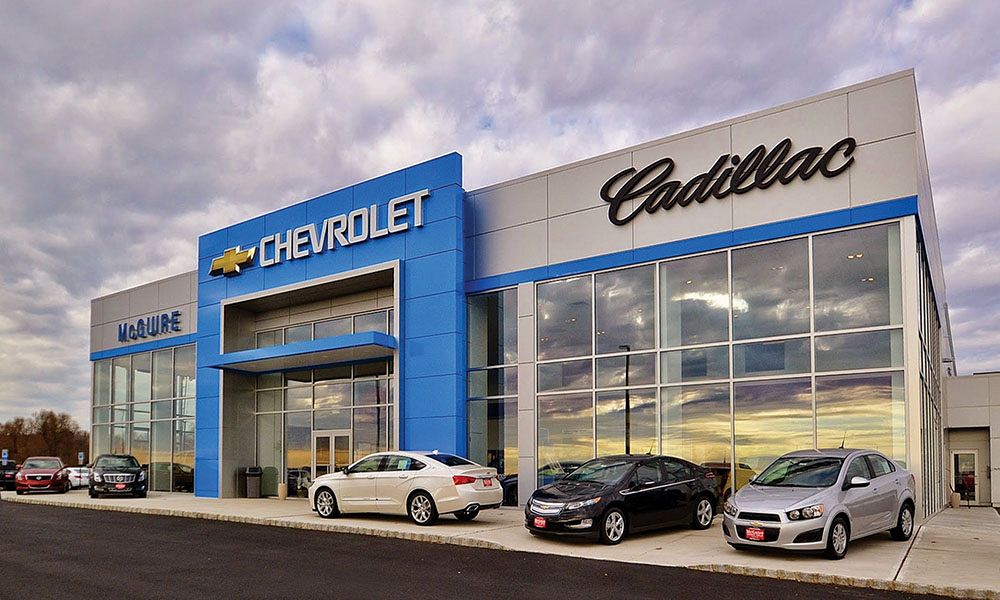What Market Research Reveals About Consumer Frustrations With Car Dealerships

Summary
Car dealerships are no longer just the gatekeepers of the car-buying process—they’re now under a microscope. Today’s buyers arrive armed with research, expecting transparency, speed, and trust, but too often they leave frustrated by hidden fees, long waits, and high-pressure sales tactics. At RILA Global Consulting, we turn these frustrations into competitive opportunities by decoding online conversations and market trends, helping automakers and dealers implement smarter, customer-first strategies. The dealerships that will win the future aren’t just selling cars—they’re selling trust, convenience, and a seamless digital-to-showroom experience.
Introduction
For decades, car dealerships were the heart of the automotive buying experience. But in today’s digital-first marketplace, consumers walk into dealerships with more information—and more expectations—than ever before. Unfortunately, many leave with the same complaints: hidden fees, pushy sales tactics, and long wait times.
Market research and social listening make it clear: dealership frustrations are shaping how buyers choose cars and brands. In fact, these negative experiences often carry more weight than vehicle features themselves.
At RILA Global Consulting, a WBENC-certified women-owned business, we use social listening and consumer research to decode dealership pain points, helping automakers and dealer groups reimagine the car buying experience for the modern consumer.
The Top Consumer Frustrations at Dealerships
1. Hidden Fees and Lack of Transparency
One of the biggest deal-breakers for consumers is discovering unexpected markups or “surprise” fees late in the process.
- What buyers say online: “I was ready to buy, but they added $2,500 in dealer fees. I walked out.”
- Insight: Transparency isn’t optional anymore. Market research shows buyers increasingly reward brands that advertise clear, upfront pricing.
2. Long Wait Times
From financing approvals to vehicle prep, consumers often spend hours at dealerships—and they talk about it online.
- What buyers say online: “Buying a car took six hours. Never again.”
- Insight: Social listening reveals rising frustration around time wasted in dealerships. Streamlined digital tools for financing and paperwork are becoming critical competitive advantages.
3. Pushy or Distrustful Sales Tactics
Consumers resent feeling pressured into add-ons or upgrades. Negative experiences with sales staff often overshadow the excitement of buying a new vehicle.
- What buyers say online: “I liked the car, but the salesperson kept pushing warranties I didn’t want.”
- Insight: Authentic, consultative selling builds more trust than aggressive upselling. Market research shows trust is now a top driver of dealership loyalty.
4. Financing Confusion
Financing remains one of the most stressful parts of car buying. Consumers often feel uninformed or misled about terms, interest rates, and approvals.
- What buyers say online: “I thought my payment would be $450, but it turned out to be $600 with add-ons.”
- Insight: Clear communication about financing is as important as the vehicle itself. Social listening shows younger buyers, in particular, value financial transparency and digital calculators.
5. Lack of Digital Integration
In an era where buyers research online before visiting, many dealerships fail to integrate digital and in-person experiences.
- What buyers say online: “The car they advertised online wasn’t actually available when I got there.”
- Insight: Aligning online inventory and promotions with in-store reality is essential. Disconnects erode brand credibility quickly.
How Market Research & Social Listening Help
By analyzing dealership-related conversations, RILA helps automakers and dealers:
- Identify recurring frustrations that hurt reputation.
- Pinpoint regional differences (e.g., financing complaints in the U.S. vs. service complaints in Europe).
- Benchmark dealership experiences against competitors.
- Translate insights into training, technology investments, and messaging.
For example, when analyzing dealership chatter for one automaker, we discovered that wait times were the top complaint across multiple states. By recommending digital pre-approval tools and express service lanes, the brand reduced customer complaints and improved satisfaction scores.
RILA in Action: Turning Pain Points into Opportunities
At RILA, we believe every frustration is an opportunity to innovate. By combining AI-driven social listening with traditional market research, we help dealerships and automakers:
- Build customer-first strategies based on real feedback.
- Improve sales team training to emphasize transparency.
- Implement digital solutions to shorten wait times and clarify financing.
- Position dealerships as trusted partners, not obstacles, in the car-buying journey.
The WBENC Advantage
As a WBENC-certified women-owned business, RILA Global Consulting brings diverse perspectives to the table—essential for understanding today’s broad and multicultural consumer base. Partnering with WBENC-certified firms also supports supplier diversity initiatives, aligning dealerships and automakers with industry best practices.
About RILA Global Consulting
At RILA Global Consulting, we help automakers, dealerships, and suppliers transform consumer frustrations into growth opportunities. Our award-winning methodologies combine social listening, consumer insights, and market research to decode what buyers truly want.
From dealership experience improvements to EV adoption strategies, our insights deliver measurable impact and stronger customer loyalty.
👉 Ready to turn dealership frustrations into your competitive advantage?
Connect with us at RILA Global Consulting and let’s reimagine the car-buying journey together.
Read More

PayPal (PYPL) Q3 Consumer Analysis: Trust, Security, and Shifting Expectations
PayPal’s Q3 narrative revealed a pivotal shift from optimism about convenience to deeper conversations about trust, transparency, and control. While total mentions and unique voices grew, discussions increasingly centered on account limitations, security holds, and dispute resolution—underscoring consumers’ desire for reliability over novelty. The rise in scam-related chatter highlighted growing vigilance, even as PayPal’s brand familiarity continued to inspire confidence. Meanwhile, challengers like Wise, Venmo, and Cash App gained momentum through their perceived advantages in speed, fees, and clarity. The result is a landscape where PayPal remains trusted but scrutinized—a symbol of digital payments maturing under consumer demand for accountability and seamless support.
October 30, 2025
READ MORE

Meta (META) Q3 Consumer Analysis: AI Friction and Privacy Concerns Shape the Conversation
Meta’s third-quarter consumer landscape paints a picture of rising visibility but waning enthusiasm. While online mentions grew nearly 10% from Q2, engagement and positivity declined as users voiced growing unease over AI automation, privacy, and platform transparency. The shift from giveaways and entertainment to deeper debates around governance and data handling signals a pivotal change in how audiences perceive Meta’s evolving ecosystem. Despite maintaining dominance in reach and integration, the company now faces a more critical public conversation—one defined by trust, control, and the uneasy intersection of innovation and intrusion.
October 30, 2025
READ MORE

CPI Insights: September 2025 — Inflation Anxiety and the Blame Game on Social Media
RILA’s analysis of over 16 million U.S. social media conversations surrounding the September 2025 CPI report uncovers a nation grappling with economic fatigue and distrust. Beyond rising numbers, Americans see inflation as a symptom of systemic policy failure — with blame falling heavily on government spending, immigration costs, and tariffs. Healthcare, housing, and education top the list of pain points, symbolizing structural failures that go far beyond temporary price spikes. The public mood is overwhelmingly negative, marked by anger, blame, and a sense of entrapment as consumers feel policy decisions — not just market forces — are eroding their economic stability and future prospects.
October 27, 2025
READ MORE

Early Holiday Spending Sentiment in October: How Consumers Are Feeling
As the 2025 holiday season approaches, consumer conversations reveal a fascinating mix of optimism and caution. While inflation and economic pressures weigh heavily on many households, shoppers are prioritizing meaningful experiences and emotional value over discounts and mass-market products. Parents, in particular, are determined to make the holidays special for their children, even if it means turning to flexible payment options like buy now, pay later or adjusting travel plans toward affordable domestic trips. The overall sentiment suggests a redefinition of holiday joy — one centered on authenticity, connection, and creative budgeting — offering brands a clear opportunity to engage with purpose and empathy this festive season.
October 24, 2025
READ MORE

Top U.S. Consumer Concerns — Last 30 Days (RILA Global Consulting Analysis)
Over the past month, American consumers have been caught between economic pressure and cautious hope. According to RILA’s analysis of 25 million online conversations, tariffs and inflation dominate public discourse — shaping a sense of financial vulnerability that spans demographics and languages. English-speaking Americans decry tariffs as a hidden tax, while Spanish-speaking communities focus on agricultural fallout and global trade risks. Inflation’s reach now extends beyond groceries to healthcare, deepening distrust in political leadership. Meanwhile, AI-driven automation fuels job insecurity, especially among younger generations who see innovation as both opportunity and threat. Yet, amid the strain, moments of optimism — from EV purchases to financial literacy — suggest that while Americans feel squeezed, they’re still seeking control and clarity in a shifting economic landscape.
October 22, 2025
READ MORE

Why Social Listening is Critical for Nuclear Energy Discussions
Nuclear energy remains one of the most emotionally charged and technically complex sectors in the global energy debate, where public perception often outweighs scientific facts. This article explores how social listening has become essential for industry leaders, policymakers, and energy organizations to understand real-time public sentiment, track misinformation, and engage communities proactively. Unlike traditional research, which captures static snapshots of opinion, social listening uncovers nuanced, rapidly evolving conversations across social media and forums, allowing stakeholders to detect concerns early, address fears around safety and waste, and craft targeted, empathetic communication strategies. By integrating these insights with market research, nuclear energy organizations can foster trust, shape narratives responsibly, and position themselves strategically in the transition to net-zero emissions.
October 22, 2025
READ MORE

Why Hospitality Brands Can’t Ignore TikTok Travel Trends
TikTok has transformed the way travelers discover and choose destinations, turning viral videos into powerful drivers of bookings and brand visibility. For hospitality brands, from luxury resorts to boutique hotels, ignoring TikTok trends is no longer an option — these platforms provide real-time signals of traveler interests, desires, and frustrations. By combining social listening with traditional market research, brands can anticipate emerging trends, tailor content to viral hashtags, and convert engagement into bookings. RILA specializes in turning TikTok insights into actionable strategies, helping hotels and travel brands bridge the gap between online virality and real-world revenue while staying ahead of the competition in a rapidly evolving digital landscape.
October 22, 2025
READ MORE

What Social Listening Reveals About Inflation’s Impact on Dining Choices
Inflation is reshaping not just what consumers eat, but how they decide where and how much to spend—conversations that are happening in real time on social media. Traditional research methods can lag behind these rapid behavior shifts, but social listening combined with AI-driven analytics provides QSR and food brands with an immediate window into consumer priorities, price sensitivity, and value perceptions. From spotting early complaints about portion sizes to identifying the most effective promotions, brands that act on these digital signals can proactively adjust pricing, loyalty programs, and messaging to maintain loyalty and competitive advantage. By treating inflation as a strategic moment rather than a challenge, companies can turn economic pressure into actionable intelligence, protecting both margins and customer relationships.
October 22, 2025
READ MORE

What Reddit and TripAdvisor Teach Us About Hospitality Pain Points
In today’s digital age, guest experiences extend far beyond hotel walls, unfolding in real time on platforms like Reddit and TripAdvisor. These forums offer unfiltered, authentic insights into travelers’ frustrations, praises, and unmet expectations, revealing pain points that traditional surveys often miss. By combining always-on social listening with structured market research, hospitality brands can detect service gaps as they emerge, understand the emotional drivers behind complaints, and implement targeted solutions that improve satisfaction and loyalty. RILA specializes in transforming these digital conversations into actionable strategies, helping hotels, resorts, and boutique properties proactively enhance operations, protect brand reputation, and turn guest feedback into a competitive advantage.
October 22, 2025
READ MORE